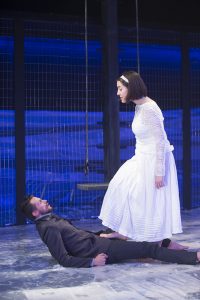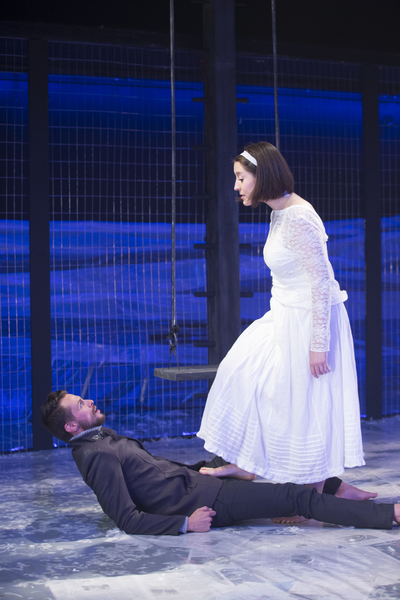In the world of theatre, symbolism is always ripe and often easy to lose an audience with. But in light of issues of persecution, shaming and violence towards women, the heavy-handed play If We Were Birds skillfully uses symbolism to give these struggles a voice.

The play is an adaptation of Book 6 of Ovid’s Metamorphoses and it remains reminiscent of ancient Greek tragedies, playing on the sensibilities of anyone with the ability to pay attention.
Following the lives of two sisters born into the high-society of ancient Athens, the tragedy pursues their evolution from girls to women. Sisters Philomela and Procne are brought into a world that they, at first, misunderstand due to their social status. Procne is married out to the handsome Tereus, a general and war hero. Philomela’s rape by Tereus, her sister’s husband, and the voices of his other captives, quickly shatters the prideful Philomela’s outlook on life, and brings forth the issues of violence, rape and the consequences of war as a stain on the pristine reality that she held so dear.
What follows is a Greek tragedy at its most masterful, full of emotion and gripping dialogue that will make you wish the play went on when it inevitably ends.
What makes this a special play is not only the almost legendary cast of actors brought together to perform this piece but also the dialogue; it speaks in the time period of the play itself and breaks the wall of time to help express the horrors that shun these women to silence. The stage presentation offers an adequate setting and the transitioning between acts is done in a way that is smooth and almost seamless to the viewer. Props are moved in and out of scenes, as the five women who play the role of slaves swoop in like birds on the objects that are no longer needed for the next scene.
The dialogue between the actors is topical, but what stands out the most is the dialogue directed at the audience by the chorus, that breaks the fourth wall and expresses what it is that the character is thinking or maybe trying to tell the world.
Each and every act was paced accordingly and never felt too drawn out, and while the ending was a perfect (if shocking) twist, the subsequent three scenes to the ending provide a gratifying end to a tale that leaves every member of the audience deep in thought, grasping at the material that they were presented in this tragic tale of abuse and manipulation.
The only objection that may come up, and a selfish one at that, is that the play simply felt like it should have been longer. The majority of the performance builds up to a crucial five minutes, where the entirety of the story comes crashing down almost immediately, and with such speed and fury that it leaves the audience begging to hear more, even if there’s evidently no other direction the play could take.
If We Were Birds was more than a pleasant surprise — it was an accessible but serious play about important issues. It brings humanity into inhuman behaviour and makes us understand the desire to fly away when faced with such brutality.
You can catch the play for yourself at the Centaur Theatre until Oct. 19. Tickets are $18 for students and $25 for adults and are available on centaurtheater.com




